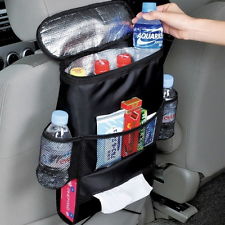Have you thought about taking your car on a road trip lately? Maybe driving cross country or visiting landmarks along your coast? Planning a road trip can be stressful, especially if you don’t know where to start. One of the most important things you should do before you consider going on a road trip is giving your car a good checkup including checking fluid levels, checking the windshield wipers, and checking belts and hoses. If your car has recently had a checkup before your planned road trip then no need to worry!
A few key points regarding your vehicle before your trip:
- Have your car serviced before a road trip just ensures you that your car has a greater chance of remaining reliable and efficient.
- Double check your car battery, make sure the terminals are clean and the battery is functioning properly.
- Take a look at your air filter, checking it and replacing it before a long road trip could get you better gas mileage.
- Check the electrical functioning parts of your car such as the dashboard, interior lights, your daytime/bright lights, turning signals, brake lights, and your horn.
- Inspect your tires before you hit the road, making sure there isn’t excessive wear and tear on the tires. Depending on what distance and the type of weather you will be traveling in, your tires will require having a good amount of tread on them.
- Make sure you have a spare tire full of air, along with proper equipment to handle any type of roadside repairs (jack, lug nuts, wrenches, tire plug kit and jumper cables).
Now once you’re done making your car is in tip top shape to hit the road for an extended period, let’s make sure your gear is in order. One of the most important things to pack on a road trip is an emergency kit, which can include many things. More commonly it’s a first aid kit, flashlights, blankets, and water. Depending on who is traveling with you, you may need specialty items in your emergency kit.
Pack smart: don’t over pack if you’re only traveling for a few days and don’t pack unnecessary items. Over packing can weigh your car down, causing your trip to take longer therefore increasing your fuel economy (fuel economy is reduced with extra cargo). If you have an older car, your car manual can give you your vehicles total load capacity (including passengers and cargo). Allow enough time to consider your car’s storage areas most effectively. Many vehicles have extra storage in the doors, the sides of the trunk or when the seats are folded down. There are specialty car storage products to help you maximize space, such as mesh netting or storage bins, or storage containers that attach to the roof of the car. Try googling “interior car storage” to find a bounty of items to choose from.
If you have a newer car you can find the total load capacity printed on the driver’s door jam. If you’re taking a road trip for the very first time, take a GPS with you along with your map. If you haven’t purchased a map within the last year or so, then your map could be outdated, newer maps can be purchased at most gas stations. If at any given moment you need to know your exact coordinates a GPS will be able to provide you with that information. Your GPS can also make it easier for you to find nearby gas stations, rest areas, restaurants, along with many other attractions. The GPS can help you avoid many congested areas, closed roads, and provide you with an alternate route. If you’re traveling with children include stops for rest areas, bathroom breaks and food; allow extra time so the kids can stretch and play before getting back into the car. Gather basic necessities for the trip such as garbage bags, baby wipes (diapers as well if traveling with smaller children), paper towels, an extra blanket per child, and snacks/ drinks for the road. Children tend to get bored very easily so be sure to pack some entertainment for them or better yet get the whole family involved by playing word games using signs on the road. Bring along their favorite music, a portable DVD player with movies, books, and some car games. If you are bringing along electronics make sure to also take along chargers, adaptors and any USB’s or batteries that you may need. One thing some drivers forget when they decide to take a road trip is that traffic is inevitable. Allow extra time for traffic, use your GPS or Google maps with traffic alerts to be informed. The main thing to remember when you’re road tripping is to be safe. Know the laws from where you’re driving and obey the laws. Safety should always be your main priority when driving.
Finally, depending on the length of time you will be gone, you may consider secure storage for your extra vehicles. This is a common scenario when relocating cross country. You may drive one vehicle and leave another behind to pick up at a later date. At Gateway Storage, we offer monthly vehicle storage options for outdoor car storage and storage in enclosed container units. Container units frequently offer additional storage behind and around the vehicle, which can be convenient when selling your home at the time of your move. Service member or individuals traveling for an extended period of time out of the country may take advantage of our low rates on container combo spaces: park a vehicle and rent a 20’ storage container for household items for the total monthly price of $285 (current rate, subject to change).
We hope you have enjoyed our tips for taking a road trip. Please contact us if we can be of service to you!
-Gateway Storage

